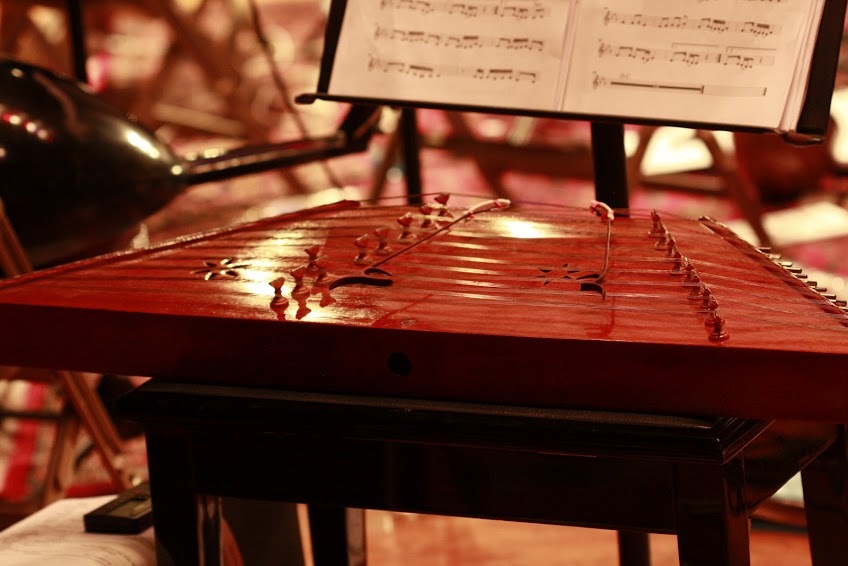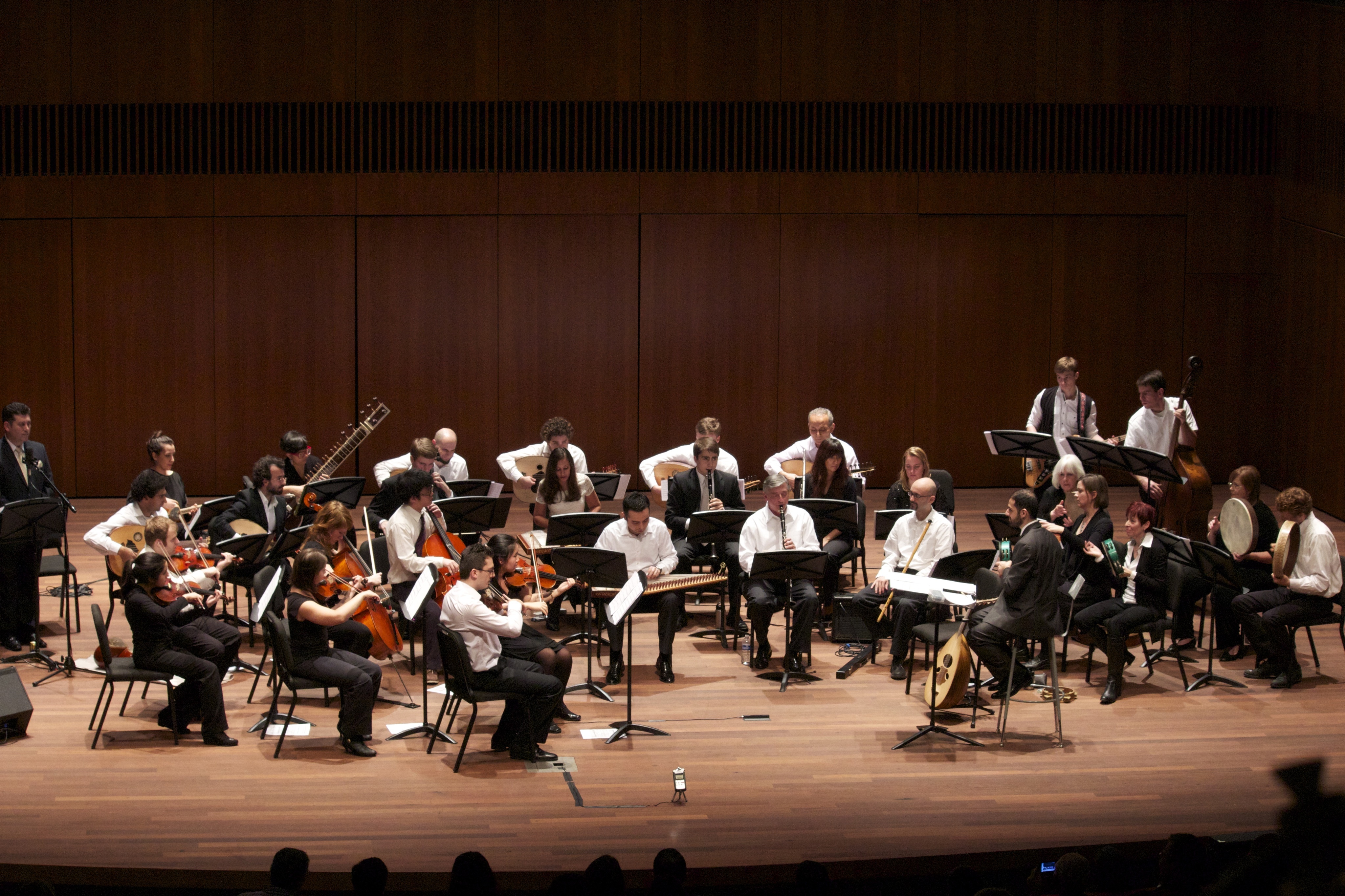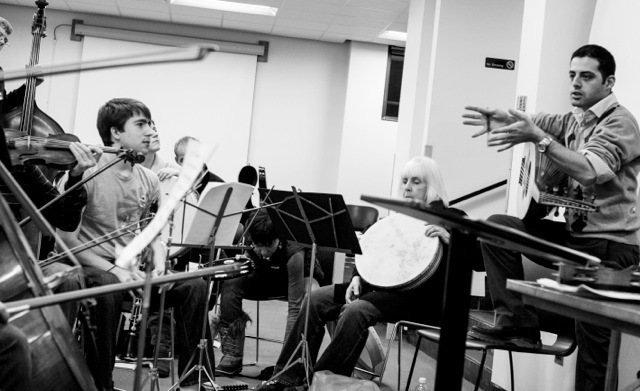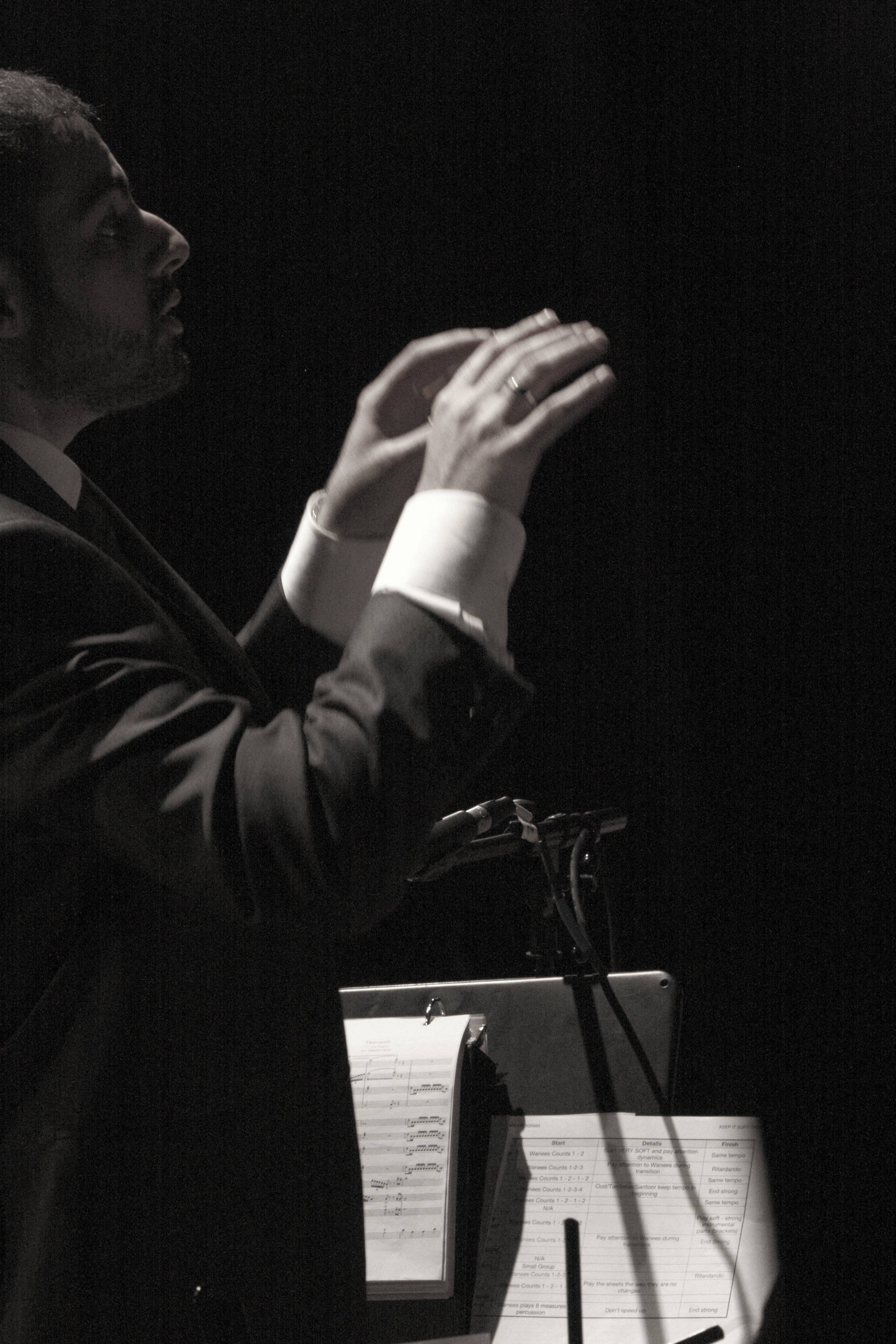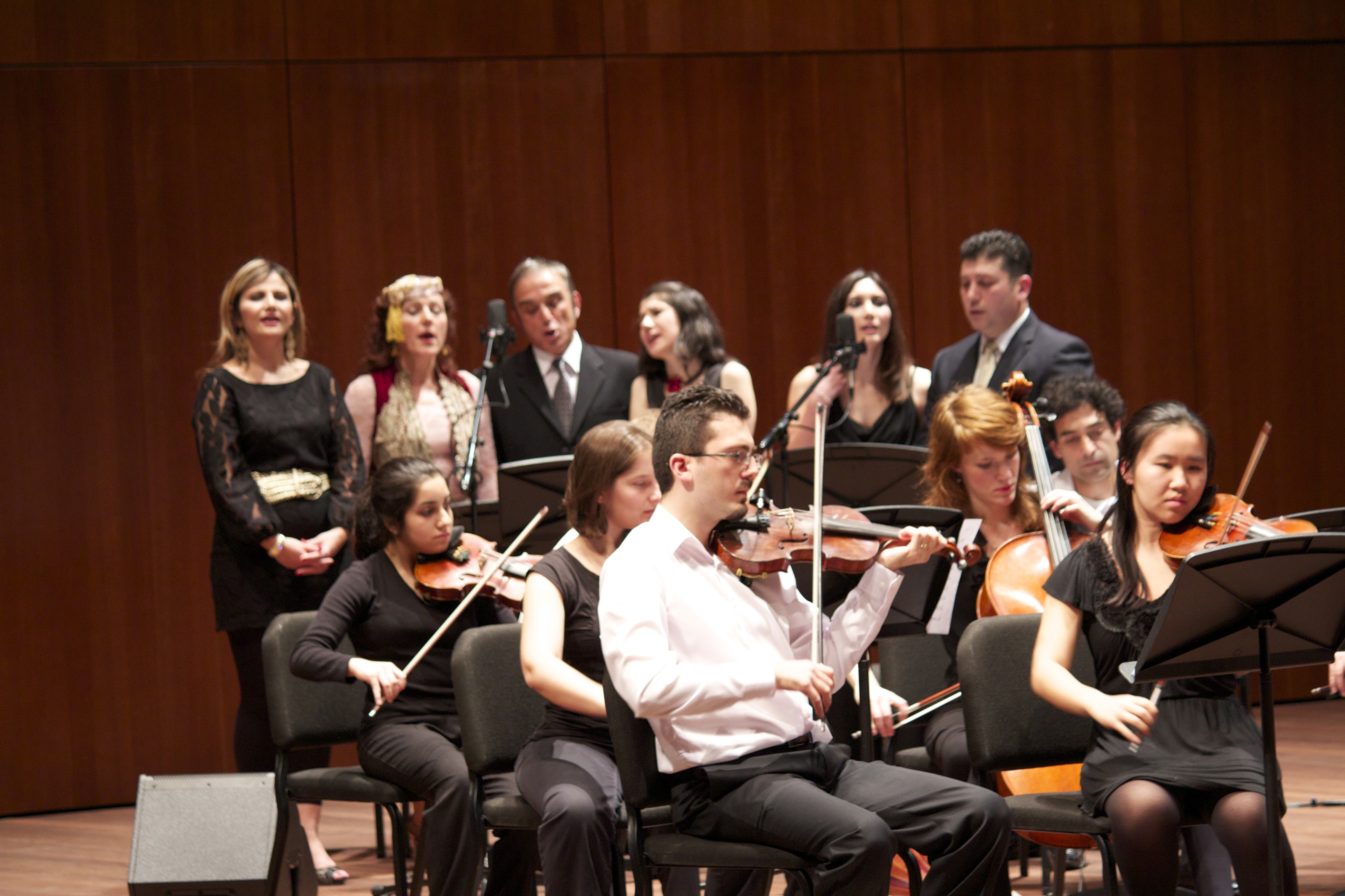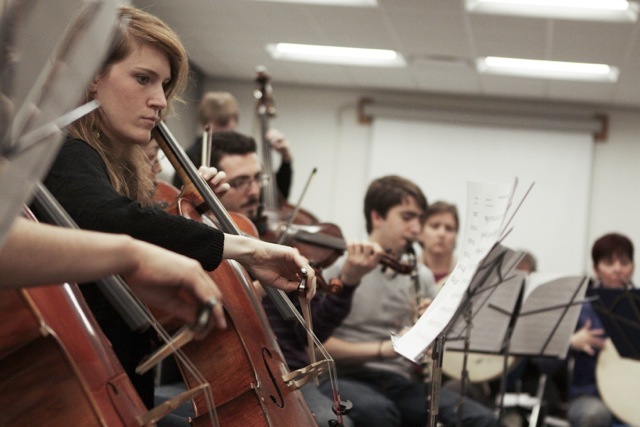
In an age when fusion is so ubiquitous that 'world music' no longer has a definition, and historic flashpoints can burst into discord with the faintest spark, institutions like the Middle East Music Ensemble at the University of Chicago provide purity of form and safe haven from resentment. No such pedigreed neutral ground comes without vigilant stewardship of a defined vision and its painstaking execution. The steward of this particular project for peace is an artistically driven Palestinian named Wanees.
Wanees Zarour has the tenacity and detail orientation of an accountant. That's because he is one. But his passionate profession as the orchestra's director compels him to place dots into rows as well as numbers into columns. He strives to bring an anthropological approach to the music, focusing on cultural context and performance practices, and inspiring inquiry and an appetite for research in the members. Zarour's devotion to performing music from Iran, Turkey and the Arab world finds him spending hours transcribing musical lines onto paper in Western musical notation from antique recordings dusted off from people's private collections.
"The three communities don't naturally interact. There's a lot of history behind it. The tensions are old," said the Ramallah-born composer-educator. "What we share in common is the music. The genres are extremely close and very similar." Each concert features music from a selected region or cultural tradition, and with every venture, Zarour gets busy constructing not only a fleeting aural experience but also a legacy.
"Arrangements in existence now are limited to the groups to whom they belong. They're not publicly available," Zarour lamented, expressing hope that the resultant collection of his scores will be available for research and archival reference in the spirit of the commons.
Himself a percussionist and player of the oud, buzuq and violin, Zarour writes musical parts not only for disparate cultural traditions but also for large numbers of instruments.
"I do arrangements and orchestration for orchestra," Zarour explained about his process of taking care to preserve each time-honored idiom in which he works. "For each concert, I select 15 to 18 pieces. I listen to every one and transcribe them in a way that's very accurate and true to form. If there are several recorded versions, I select the most authentic, whether it's Persian, Turkish or Arab."
Unique among Middle Eastern orchestras nationwide for carrying out its mission on such a vast scale, the ensemble has a constant roster of about 45 instrumentalists disciplined in the specific regional musical traditions performed, roughly half of whom are University of Chicago students. Each concert requires of the musicians that they stretch beyond their own heritage specialty to play across geocultural boundaries. A larger rotating pool of performers brings the all-volunteer community to approximately 100 professional or semi-professional instrumentalists and vocalists, including some from the Chicago Symphony Orchestra and Chicago Sinfonietta.
"I would guess that 90 percent of the musicians in Chicago who have any involvement in Middle Eastern classical music play with the Middle East Music Ensemble," Zarour said, then added with a chuckle, "You might say MEME is Chicago's one-stop shop for classical Middle Eastern music."
The university's Director of Performance Programs Barbara Schubert said of the ensemble that its concerts "help open the ears, the minds, and the hearts of both performers and listeners to the artistic landscapes of the Middle East," crediting Zarour not only with improving quality and scope since he took over three years ago, but also with being a "kind and inspirational leader for the group."
World-renowned ethnomusicologist Martin Stokes started the project before returning to the UK in 2007 when celebrated composer and jazz cross-over Issa Boulos took over the directorship, growing the ensemble from small to mid-sized.
In addition to selecting repertoire, writing arrangements and conducting rehearsals two or more hours per week for two months prior to each concert, Zarour is responsible for finding venues for rehearsals and performances. Rehearsals and concerts currently take place in the elegant penthouse and Performance Hall of the new Reva and David Logan Center for the Arts on campus.
"I don't like it when people say music is a universal language, because it's not," Zarour asserted. "Music is unique to each culture. But the cross-cultural aspect is important. And MEME is an organization that brings communities together. It brings people together."

